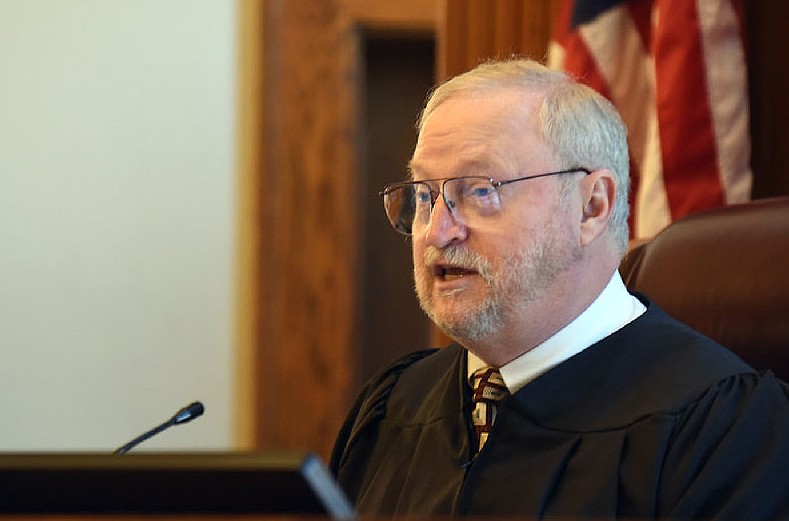The addition of another judge and a move to consolidate all of the cases a person faces with the same judge appear to be improving the flow of cases at the Cole County Courthouse.
While the new system has been in use for only a few months, Presiding Circuit Court Judge Jon Beetem believes keeping all of a person's cases with the same judge benefits that person and makes the court system more efficient.
"We found, thanks to information from our pre-trial release program, that most people miss court because of confusion with multiple court dates in multiple courts," Beetem said. "It's also inefficient for defendants and their lawyers to appear in different courts and at different times. The vast majority of misdemeanor charges, for people with felony charges as well, get resolved when a plea is made and accepted in a felony case."
Beetem said the judges instituted a rule that enabled misdemeanors to follow felonies. He said having a person appear repeatedly on a misdemeanor charge, which wouldn't be resolved until a felony charge was resolved, created more work for everyone.
"That led to the one judge/one defendant process being created," Beetem said. "We haven't changed the fact that felonies that start in the associate circuit courts still have to be bound over to the circuit courts, either by a preliminary hearing or a waiver of such a hearing."
In a preliminary hearing, the associate circuit judge hears arguments from both sides in a case to determine whether it should be transferred to the circuit courts for possible trial.
Beetem said he thinks everyone in the courthouse has been "reasonably pleased" with the system.
"It makes the caseload numbers in the two associate circuit courts go down and causes the numbers in the three circuit courts to go up," Beetem said. "We still have a cycle where all the courts will have giant dockets at times, but they do tend to level out."
Known as "law days," the circuit judges schedule days when they hear the status of cases assigned to them. This can include judges' taking pleas and rendering sentences.
Beetem's upcoming law day has more than 200 cases on the docket. His previous law day in June had fewer than 100 cases.
"Yes, it can make for more of a load at times for us in the circuit division, but it's still manageable; and thanks to the one judge/one defendant process, you have all the cases of one person in front of the same judge," Beetem said.
The days of the local circuit having one associate circuit judge went away this year after Brian Stumpe was elected to the new second judge position in November and Christopher Limbaugh was appointed to fill out the remainder of the term Cotton Walker had on that bench. Walker won election for the circuit judge position vacated after Pat Joyce retired.
The associate circuit court can hear several criminal matters, probate cases, domestic and family law matters, landlord-tenant disputes and other civil cases. With just one judge, that division was hearing several thousand cases a year - compared to the circuit courts, which hear hundreds of cases.
Beetem said the courts want to see 90 percent of cases resolved in 180 days, and he thinks those numbers are starting to increase.
"It's less than six months since Judge Limbaugh began hearing cases, but I believe this is where we thought we would be by this time," Beetem said. "We are moving cases faster in those courts. By that I mean our disposition times (how long it takes to resolve a case) on misdemeanor and felony preliminary hearing cases has improved, and both Judge Limbaugh and Judge Stumpe have really been working hard to get that done."

